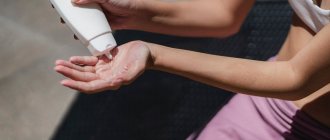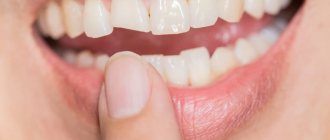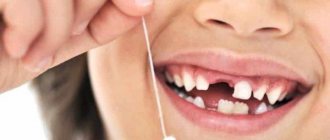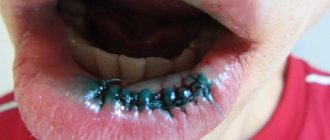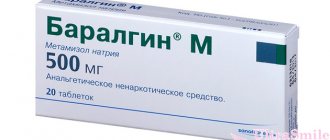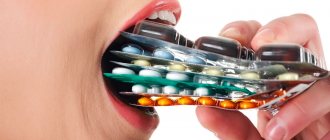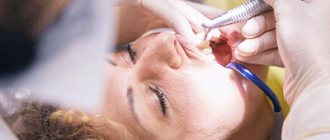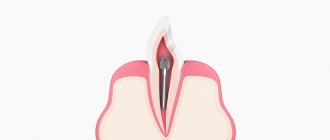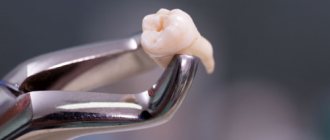Parents always have a number of concerns regarding the health of their children. For example, it is important to know how a mother herself can correctly and quickly pull out a loose baby lower or upper, front or chewing tooth, fang or incisor, at home so that it doesn’t hurt, the better with dental floss or sewing thread, or without them, just with your hands, Is it even possible to do this yourself, how to help you heal faster and survive the recovery period on your own and painlessly, without complications and at home.
When they start to fall out
This phenomenon can be encountered when the child turns 5-6 years old. It occurs due to the fact that the jaws begin to grow. It is completely painless for most children, due to the fact that during the growth of the radical replacement, the roots of baby teeth are reabsorbed. They become mobile and then fall out. This is ideal.
There are cases when improper formation is observed, especially of premolars, and very rarely of incisors and canines. Due to the violation, resorption does not occur on time. Careful removal is required so that they can grow healthy and even in the future.
Lasts up to 10-12 years, depending on the individual characteristics of the body. Interestingly, in girls it begins earlier and proceeds much easier and faster than in boys.
If you had to remove several neighboring units prematurely
This happens due to traumatic damage to the upper or lower jaw, or parents ignoring the child’s serious dental problems. If the planned change of removed units is more than one or two years away, special children's dentures should be made. Usually these are plates that need to be worn during the day to prevent negative changes in the bite.
Plastic or metal retainers should be used until permanent teeth begin to emerge. Only then can they be abandoned.
Should I rush to delete it?
Parents are interested not only in how to correctly pull out a child’s tooth, but also when it can be done. A clear answer to the question is not recommended without medical indications. Because the rudiments have not yet fully formed. They will not erupt for a long time. The absence of at least one element of the dentition leads to the fact that the rest begin to slide, taking up free space, which leads to an incorrect bite. Those that should be in a specific place will not come out before their due date. This means that when the time comes, they simply will have nowhere to grow.
Among the dangerous consequences of this procedure:
- the appearance of painful and unpleasant sensations during teething;
- change in diction, habit of burring;
- incorrect jaw structure;
- problems with digesting food.
Therefore, it is better to refrain from deleting in advance if there is no reason for this.
If teeth are removed too early
Pulling out is considered premature when there is more than a year left before the natural change of teeth. In this case, the “neighbors” manage to occupy the vacated space, and there is no space left for the eruption of the future molar, incisor or molar.
As a result, the likelihood of developing a malocclusion . It is possible that you will have to wear braces as a teenager. Therefore, there is no need to rush to pull it out. The operation is only permissible if there are medical indications for its implementation.
Indications
Among the cases when the doctor may insist that the milk needs to be vomited:
- advanced caries, which can cause infection in the oral cavity;
- cyst;
- a loose element of the dentition injures the gums, which leads to inflammation;
- long-term spontaneous loss;
- chip, crack or other injury;
- orthodontist indications;
- phlegmon;
- periodontitis;
- fistula;
- sinusitis.
If there are such reasons, it is necessary to remove the traumatic element ahead of schedule so that it does not lead to serious diseases of the oral cavity.
Is it possible to pull out baby teeth yourself: when is it allowed?
You can help your child yourself only in a few cases. The main thing is that everything has its time. There are elements of the dentition that fall out naturally at the age of 5-8, or those that children lose closer to adolescence. Parents need to know about the location and timing of each one. If a loose element is about to fall out in time, you can help it, and if not, consult a doctor.
You should not run to the doctor if the second row appears. This sight is unaesthetic and often causes horror and an urgent visit to the dentist. This process occurs due to the fact that children have an excess of beneficial microelements in the body; accordingly, the formation of new ones occurs faster than the resorption of milk roots. Removal is not required; after timely loss, the root one will take its place. If this does not happen, braces may be available to help.
Caring for the child's psyche
So that over the years the child does not turn into an adult who trembles at the mere word “dentist,” you must definitely find a doctor for him who inspires confidence. A lot depends on the professionalism of the child specialist. Not the least important factor in preparing for a problem-free extraction is the attitude of the parents. They should remain calm and distract the baby, and not irritate him. It is imperative that mom or dad be with the child in the dental office.
Do not ignore the importance of baby teeth in the formation of a permanent bite. Treat them promptly in your child. Then his smile will always be healthy and beautiful.
Possible complications
An increase in temperature, even a slight one, indicates the development of an infectious-inflammatory process, and therefore requires urgent medical attention.
Other possible hazards include:
- change in bite;
- speech defects;
- decreased chewing function;
- prolonged bleeding from the socket, wound infection;
- pain in the area of removal;
- general weakness, hyperthermia.
Treatment of complications is very important. They can lead to dangerous consequences, including sepsis. If persistent hemorrhage, the presence of pus, severe pain, or fever are detected, it is necessary to urgently consult a specialist.
The wound will heal
During the natural process, when an old tooth falls out, a molar very easily erupts in place of soft, non-healed tissues. In case of mechanical intervention and tightening of the wound, a scar appears, through which it will be very difficult to break through. This will lead to pain and possible abnormal growth of the new tooth.
Damage to the primordia
If the technique is violated during removal, the growing ones can be damaged. Unformed tissue is very sensitive to mechanical stress, which can result in significant problems in the future. If you decide that you are definitely pulling out a child’s tooth at home, you should be prepared for:
- curvature, irregular formation;
- in places of damage to the top layer - the formation of caries;
- darkening of the enamel;
- displacement.
Therefore, it is necessary to resort to such intervention only when indicated.
The bite is disturbed
The most common problem that occurs when pulling out incorrectly is displacement. Associatively, you can imagine it like this:
- Dairy is a definite benchmark for growth.
- The root one rests on the roots and strives upward.
- After mechanical impact, the direction is lost, which leads to the fact that the dentition moves. Correction with braces may be required.
This is only one of the possible development options. If you remove them too early, the remaining ones will try to move into the free space. In this situation, there will simply be no room for the new one to erupt; it may come out sideways or second row, after which a lengthy adjustment will be required.
Overload of the masticatory apparatus
Each incisor, canine, molar or premolar has its own function for tearing and processing food. When one of the structural elements of the jaw is missing, the load is redistributed. Due to the fact that the remaining teeth are not designed for it, they are damaged and deformed. There is a possibility of tooth decay, displacement, gum disease and many other problems in the future.
Dangers of Home Removal
There are enough of them to make a rational choice in favor of professional dentists:
- there is a high risk of infection, because introducing dirt and infection into the hole will lead to suppuration;
- damage to molar primordia can cause damage to adult teeth;
- when tying with thread and other improvised means, the gums are often injured;
- displacement of the dentition, changes in the bite, subsequently problems with digestion and diction.
It is better to trust the experience of professionals than to risk the health of the child.
How to make it fall out yourself
The best and painless option in all respects is the natural process of change. However, it happens that the milk begins to wobble long before it falls out, which brings a lot of discomfort to children and worries parents. There are several ways to speed up spontaneous loss without causing harm.
Tongue loosening
Children are often told not to lick a loose tooth. There is an established myth that new ones may not grow evenly. This statement is completely false. When talking, eating, we constantly touch our teeth. When changing, this is necessary so that the loss occurs faster.
Do not be too zealous and press with your tongue, applying force. Light loosening will be beneficial and will help develop the gums. This should not be allowed if the dairy is not yet very wobbly. When the replacement process just begins, you need to wait the time necessary for root resorption. Otherwise, you can damage soft tissues or the rudiment and cause an infection.
We resort to using our fingers
After watching a video of children having their teeth pulled out at home, many parents decide to repeat what is not the safest and most hygienic option. The hands contain a huge amount of bacteria that will be transferred to the oral cavity. You can miscalculate the force and injure the gums, where an infection will develop.
You can try to loosen it with your fingers without applying pressure. Just moving it a little in different directions. If pain occurs, stop and go to the dentist. It is possible that the infection has already entered the tissue, which is fraught with complications.
Another contraindication is that the roots are still sufficiently attached to the hole. Parents will not be able to check this on their own; it is necessary to consult a doctor who will give recommendations on whether the root canal will appear soon or whether it is necessary to wait a little longer before accelerating the loss.
We clean with special zeal
Toothbrushes are designed taking into account the physiology of the oral cavity. Therefore, it is almost impossible to seriously damage them unless you spend several hours in the bathroom, irritating soft tissues by friction. It is worth increasing the cleaning time by a few minutes and doing it not twice a day, but 3-4.
It is better to go to a clinic, where they will recommend professional soft brushes that do not injure the gums. Hard bristles can scratch and lead to the development of inflammation, gingivitis and periodontitis. Therefore, it is necessary to choose hygiene products for a child during the period of change of bite after consultation with a dentist.
Chewing on solid food
Many self-help tips tell you to eat apples, pears, cucumbers and other tough vegetables and fruits. In part, yes, the chewing process is the most physiological of all, but it can be dangerous.
When a tooth begins to become very loose, the roots in the gums no longer hold well. Accordingly, there is no point of support. When bitten, it easily moves to the side, and sharp clenching of the jaw causes it to break easily. In this situation, parts will remain inside, requiring the help of a dentist, a painful removal procedure, and also the risk of injury to neighboring tissues. Therefore, it is better not to resort to this technique, so as not to make things worse.
Preparing the child
The natural process of changing your bite is usually easy and painless. However, there are times when parental or dental intervention is required. Children are afraid of being hurt, of any outside interference. Therefore, when hesitation is noticed, it is necessary to conduct moral preparation of the child.
It is enough to explain that this is normal. A 5-year-old child will not be able to perceive information correctly, so it is better to use simple figures of speech and a playful form. Mythological children's thinking responds well to all kinds of fairy tales. You can read to your child a special collection of stories dedicated to this phenomenon. Prepare gifts from a fairy-tale character for your patience.
How children's baby teeth are pulled out at home
Before making a decision, it is worth soberly assessing several factors and making preparations:
- Own capabilities. Parents often miss small bumps and inflammation in the gums. They think that swelling is normal. However, any minimal inflammation can lead to cellulitis, malocclusion and secondary infections.
- Compliance. You can't pull those that stand firmly. If they just started to loosen. You can injure soft tissues and cause infection. It is better to turn to specialists than to cause damage that is difficult to repair.
- Tools. You need to prepare special antiseptics in advance and sanitize the oral cavity. Dishes and other things that will help not prolong the unpleasant procedure.
- Psychological preparation. Any movement of the baby, a jerk to the side or severe fright can lead to a violation of the technique, and therefore dangerous consequences. If your child is nervous, capricious, or refuses to sit still, you should trust professionals who know how to remove fidgets.
- Hearty lunch. Afterwards you will not be able to take food or water for 2-3 hours. This time is necessary for the formation of a blood clot in the socket. It serves as a protective barrier against pathogens entering the wound.
When preparing, it’s worth thinking again about whether parents are ready to take the risk and do everything themselves instead of going to the dentist, which will not take more than 15 minutes of time.
How to pull out a child's tooth using floss
The most common method that is often performed incorrectly. Pre-treat the thread with an antiseptic. It’s better to soak it in the solution for a few minutes and let it soak well. It is recommended to use special dental or nylon thread, rather than sewing thread, which can easily break. Then make a self-tightening loop. It is important to secure it well in the root zone; if it slips, it will cause pain.
It is important to perform the technique correctly:
- tear in one quick movement;
- the direction is strictly in the direction of growth, and not sideways or in the opposite direction (you cannot tie a thread to a door handle or other objects);
- If the procedure is violated, fragile tissue without nutrition from the roots may collapse and remain in the hole, which will cause suppuration and infection.
If it doesn’t work out the first time, you don’t need to torture yourself and your child; it’s better to go to a clinic, where the process will be quick and painless.
Using your hands
Be sure to wash with soap and disinfect with an antiseptic, cut off your nails (they are not only a source of infection, but also interfere with grip and retention). Then carry out sanitation of the oral cavity.
Firmly grasp the loose tooth, loosen it, and check its pliability. When you are sure that it will easily succumb to a sharp jerk, pull it out. It sounds simple, but you need to be careful. Tear only in the direction of growth, otherwise there is a high risk of leaving a broken piece in the hole.
If your hands are shaking, there is the slightest fear and uncertainty - you should not take on the task yourself
Important Tips
Home removal is not one of the procedures recommended by doctors, but if there is no other option and you can’t persuade your child to go to the dentist, use the following useful tips:
- Take your time.
Let the child himself try to push the loose element out of the jaw using his fingers and tongue. The baby understands his feelings better and does not hurt himself. Come to help if the child cannot cope on his own. - Before pulling out a tooth, prepare yourself psychologically and prepare your baby. Come up with a ritual for saying goodbye to your tooth. Give a toy for courage, do not forget to praise the brave man.
- A bandage for wrapping a finger or thread is disinfected with alcohol, iodine, and brilliant green.
- Before removing teeth, you need to brush them and rinse your mouth with Rotokan.
- For pain relief in case of severe discomfort, the gums and cheek are treated with a teething gel for infants with lidocaine and a crushed analgin tablet.
- Pull the tooth 30-40 minutes after eating.
- If blood appears on the gum, ask the child to spit it out, do not allow him to swallow.
- The bleeding will quickly stop, the gums will not swell if you apply a cold compress to your cheek, or even eat ice cream. Give your kids a teaspoon of sweets 10–15 minutes after the procedure.
- Replace unpleasant memories with positive emotions. Praise the child again, tell relatives about his courage during the removal of a canine or other tooth. Fear and fright on the wave of pleasant impressions and gifts will pass faster.
How to care after the procedure
When you pull out a baby tooth yourself, you need to stop the bleeding. To do this, a piece of bandage or gauze is moistened in an antiseptic and pressed against the hole. There is no need to press hard or try to blot all the blood. A blood clot should form. Ask your child to hold the tampon in place with his jaws for a few minutes.
After 3-5 days, the wound will heal completely; there is no need to rinse. This can lead to cleansing of the wound from the protective physiological layer and easy access for bacteria. Take antiseptic baths or simply treat with Miramistin.
Contraindications to tooth extraction at home
Before choosing a method to extract a tooth yourself, it is important to make sure that this manipulation will not cause harm. The presence of the following manifestations is a contraindication for removing thrush at home:
- redness of the gums;
- strong adhesion of the tooth to the jaw;
- thickening of the gums due to swelling;
- the presence of blood or pain when the milkman staggers;
- increased body temperature, signs of acute respiratory viral infection, sore throat;
- the child has severe fear.
When performing a manipulation, you cannot hold the child by force, otherwise the fear of performing procedures in the mouth will remain for life. In all doubtful and complex cases, you should contact a specialized specialist - a pediatric dentist.
Children often experience carious lesions in primary teeth, leading to their partial destruction. Such situations require a mandatory visit to a doctor with subsequent treatment or removal. Even severely damaged carious teeth cannot be pulled out on your own - this will lead to pain and injury to the gums and lips.
